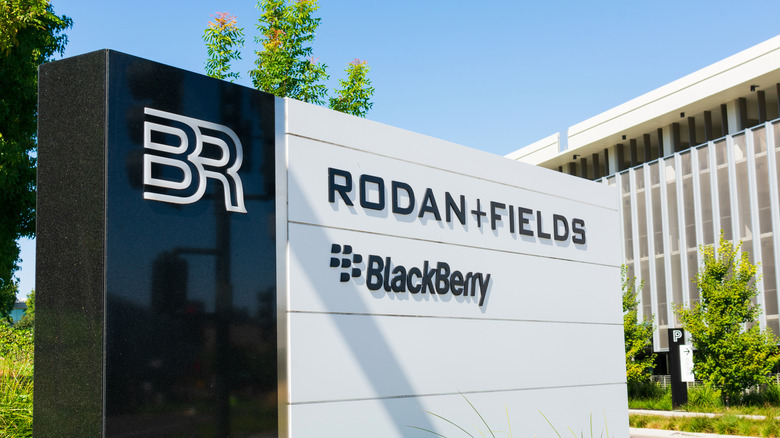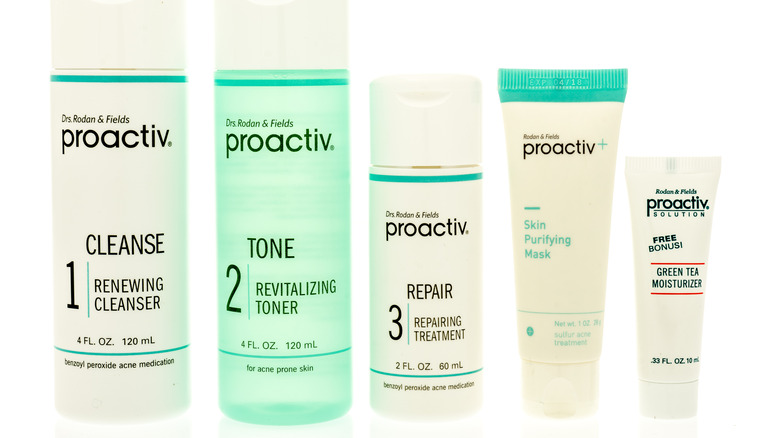Is Rodan And Fields An MLM?
The first thing that may come to mind for you when you hear the name Rodan + Fields is Proactiv Solution, the skincare system geared toward acne-prone skin that likely once resided in the cabinets of every teen you knew, and the infomercials for which ran on a seemingly constant loop on late night television (via GigHustlers). This is because Dr. Katie Rodan and Dr. Kathy Fields are in fact the creators of this skincare line, and they often made appearances on those infomercials themselves to tout the professional, medical backgrounds of the people who were bringing you this skincare line.
Since the good old days of Proactiv, however, Rodan + Fields has grown immensely and changed its business model. While you once had to buy their products directly from the company, beginning in 2007, Rodan + Fields switched its game plan and became a multilevel marketing company (MLM), employing consultants in order to encourage direct sales. So rather than the products from an infomercial or website, you were now likely buying them through a friend or neighbor.
So if Rodan + Fields is an MLM, what does that actually mean?
How MLMs like Rodan + Fields operate
You may have heard that MLMs are very very similar to pyramid schemes, and yet you probably know someone you love and trust who sells for one and assures you it is simply a direct sales model, and if you are going to buy skincare from a store, why not buy it from a friend? So which is the truth? Well, both, actually.
According to investopedia, "MLM encourages existing members to promote and sell their offerings to other individuals and bring on new recruits into the business. Distributors are paid a percentage of their recruits' sales. New recruits become the distributor's network or downline and are, in turn, encouraged to make sales to earn money." What this means is that while a portion of consultants' income does come from directly selling products to their customers, the only way for them to make a lot of money is to recruit more and more people underneath them to also sell products, and collect a portion of those profits as well as bonuses.
This is where the whole system starts to look like a pyramid, which is technically is, but because the company and its consultants actually sell a real product, they are not operating an illegal pyramid scheme. That said, the fact is that only 25% of MLM sellers turn a profit at all, which means 75% do not make any money (via Fundera). This is why many consider MLMs a scam.

